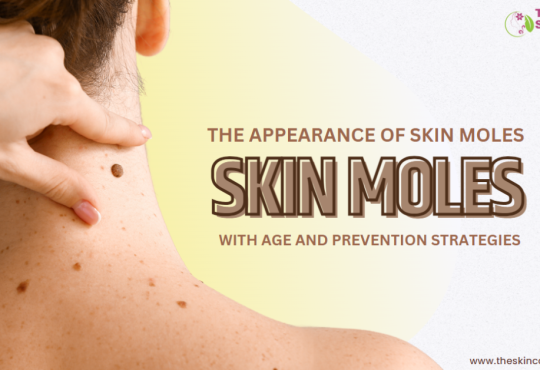 Dandruff is a common scalp condition that causes white flakes of skin to appear on your hair and shoulders. It can also cause itching, redness, and irritation. Dandruff is not a serious health problem, but it can be annoying and embarrassing. Fortunately, there are many ways to treat dandruff at home or with the help of a doctor.
Dandruff is a common scalp condition that causes white flakes of skin to appear on your hair and shoulders. It can also cause itching, redness, and irritation. Dandruff is not a serious health problem, but it can be annoying and embarrassing. Fortunately, there are many ways to treat dandruff at home or with the help of a doctor.
What causes dandruff?
Dandruff is caused by a variety of factors, such as:
- Dry skin: This is the most common cause of dandruff, especially in winter when the air is dry. Dry skin flakes off more easily and becomes visible on your hair.
- Seborrheic dermatitis: This is a skin condition that affects the scalp and other oily areas of the body, such as the face, chest, and back. It causes red, scaly patches that may be greasy or yellowish. It is thought to be related to an overgrowth of a yeast-like fungus called Malassezia that lives on the skin.
- Sensitivity to hair products: Some people may have an allergic reaction or irritation from certain ingredients in shampoos, conditioners, styling products, or hair dyes. This can cause contact dermatitis, which manifests as a red, itchy rash on the scalp.
- Other factors: Some other factors that may increase the risk of dandruff include age (young adults to middle age), gender (males have more dandruff), oily scalp, neurological diseases (such as Parkinson’s disease), and stress.
How to treat dandruff?
The first step to treat dandruff is to wash your hair regularly with a gentle shampoo to remove excess oil and skin cells. However, if this does not help, you may need to use a medicated shampoo that contains one of the following active ingredients:
- Zinc pyrithione: This is an antibacterial and antifungal agent that can help fight Malassezia and reduce inflammation.
- Tar: This is a natural substance that slows down the shedding of skin cells and reduces scaling. However, it may stain light-colored hair and make the scalp more sensitive to sunlight.
- Salicylic acid: This is a chemical exfoliant that helps remove dead skin cells and prevent buildup. However, it may dry out the scalp and hair if used too often.
- Selenium sulfide: This is an antifungal agent that can help control Malassezia and reduce flaking. However, it may also discolor the hair and scalp if not rinsed well.
- Ketoconazole: This is a potent antifungal agent that can kill Malassezia and improve dandruff symptoms. It can be used by anyone regardless of the cause of dandruff.
- Fluocinolone: This is a corticosteroid that can help reduce itching, flaking, and inflammation. It is usually prescribed by a doctor for severe cases of dandruff.
When using a medicated shampoo, follow the directions on the label carefully. Some products need to be left on for several minutes before rinsing, while others need to be rinsed off quickly. You may also need to alternate between different types of shampoos to prevent resistance or irritation. Once your dandruff is under control, you can use the medicated shampoo less frequently for maintenance.
In addition to using shampoos, you can also try some home remedies to treat dandruff naturally. Some of these include:
- Tea tree oil: This is an essential oil that has antibacterial and antifungal properties that can help fight Malassezia and reduce inflammation. You can add a few drops of tea tree oil to your regular shampoo or dilute it with a carrier oil (such as coconut oil) before applying it to your scalp.
- Coconut oil: This is a natural moisturizer that can help hydrate your scalp and prevent dryness. It also has antimicrobial properties that can help protect against dandruff. You can massage some coconut oil into your scalp and leave it on for at least 30 minutes before washing it off with shampoo.
- Aloe vera: This is a plant that has soothing and healing properties that can help reduce inflammation and irritation on your scalp. It also has antibacterial and antifungal properties that can help prevent infection. You can apply some fresh or bottled aloe vera gel to your scalp and leave it on for 15 minutes before rinsing it off with water.
- Apple cider vinegar: This is a natural acidic substance that can help balance the pH level of your scalp and inhibit the growth of Malassezia. It also helps remove buildup and restore shine to your hair. You can mix one part apple cider vinegar with two parts water and spray it on your scalp after shampooing. Leave it on for 15 minutes before rinsing it off with water.
- Baking soda: This is a natural abrasive that can help exfoliate your scalp and remove dead skin cells. It also helps neutralize the acidity of your scalp and reduce oiliness. You can wet your hair and rub some baking soda onto your scalp. Leave it on for a few minutes before washing it off with shampoo.
Other tips to prevent and treat dandruff include:
- Avoid scratching your scalp, as this can damage your skin and cause infection.
- Manage stress, as this can trigger or worsen dandruff.
- Eat a balanced diet that includes omega-3 fatty acids, probiotics, and vitamins that support skin health.
- Avoid spicy, greasy, or sugary foods that may stimulate the scalp or cause inflammation.
- Limit the use of hair products that may irritate your scalp or cause buildup.
- Change your pillowcase and towel frequently to avoid transferring oil and bacteria to your scalp.
When to see a doctor?
If you have tried various treatments for dandruff and still have no improvement, you may need to see a doctor or a dermatologist. They can examine your scalp and rule out any other conditions that may cause similar symptoms, such as psoriasis, eczema, or fungal infections. They can also prescribe stronger medications or treatments that may be more effective for your case.
Dandruff is a common but treatable condition that affects many people. By using the right shampoos, home remedies, and lifestyle changes, you can get rid of dandruff and enjoy a healthy and flake-free scalp.





